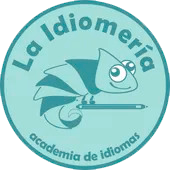Surely you have heard of or even speak a dialect. The case is not so exceptional, if we think that Italy is the richest European nation in dialects. Besides, Until a few decades ago, most of the Italian population only knew how to speak the dialect and did not know Italian.; even the Italian himself, at first, It was not one of the most spoken dialects in Italy.
When were dialects born?? Why are they called that?
The history of Italian dialects is the same history of Italian. In fact, Italian comes from Latin, Just as the dialects spoken in Italy descend from Latin. At first all languages coming from Latin were called vulgar languages or simply vulgar. The word vulgar in fact means spoken by the vulgar (from Latin vulgus), that is, for the people, who no longer knew Latin. So the Sicilian, the bolognese, the piemontese, the venetian, the lombard, what today we call dialects, At first they were vulgar languages.
At first Tuscan was just one of the many vulgar languages. The Italian is called that, in fact, only since the 16th century; and the Italian term indicates the vulgar Tuscan recognized as the language of the entire country.. The term dialect was born at this time to distinguish all the vulgar languages spoken in various parts of the country., and the tuscan, meanwhile, he was becoming Italian.
How many dialects are there in Italy?
Counting dialects is very difficult, if not impossible. In fact, in each nearby town and village the dialect often has characteristics that differentiate it from the nearby town and village.. And so we talk about Calabrian dialect, piamontese or lombardo, Milanese, cosentino etc. In reality they are very broad and imprecise denominations., because often the differences are so great that there is no possibility of mutual understanding even within the same community.
Besides, the sounds of the dialects of northern Italy, central and southern can be quite different from each other. Part of that may even depend on languages that were spoken before the spread of Latin.
What are the differences between a language and a dialect?
Not even scholars find a single, shared answer about the differences between a language and a dialect.. Anyway, We can say that the dialect could be defined as a language used by a small group of people, in a specific place and that do not have official uses: They say that a language has official uses if it is used in a school and in an administration, for example in public offices and in courts.
So, For example, If you live in Pulla and know the dialect you will be able to communicate in Pulla dialect with other Pulla people. But if you talk to a Roman, a venetian, a Marquigian it would be very difficult to communicate with them by continuing to use your dialect. Other differences are of social use: the school, the newspapers, television, the cinema, The public administration actually uses Italian and not the dialect. Besides, Those who know the dialect tend to use it much more with family and friends, while outside one's own home and with strangers one uses Italian more often..








